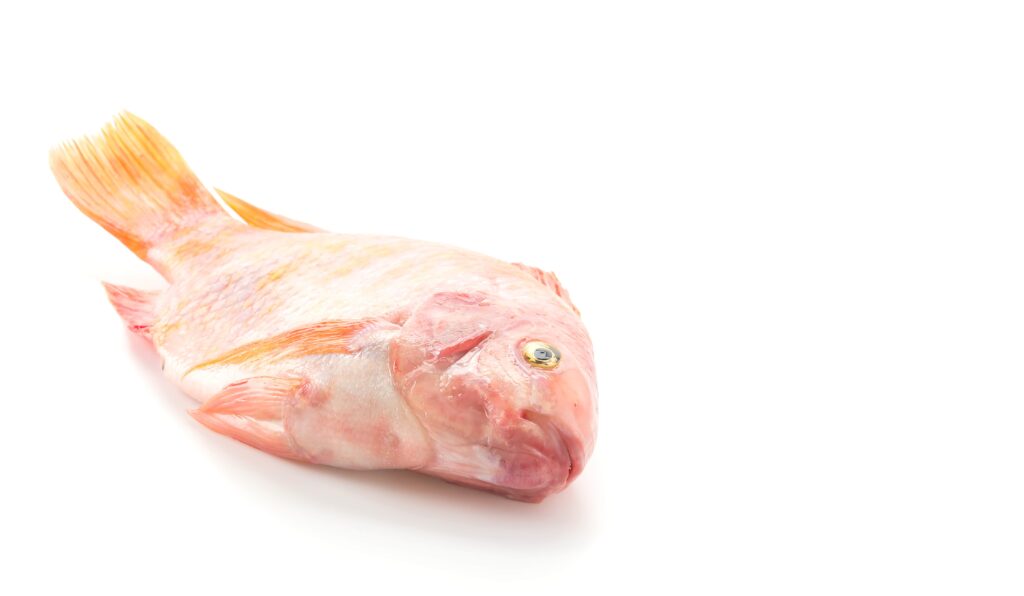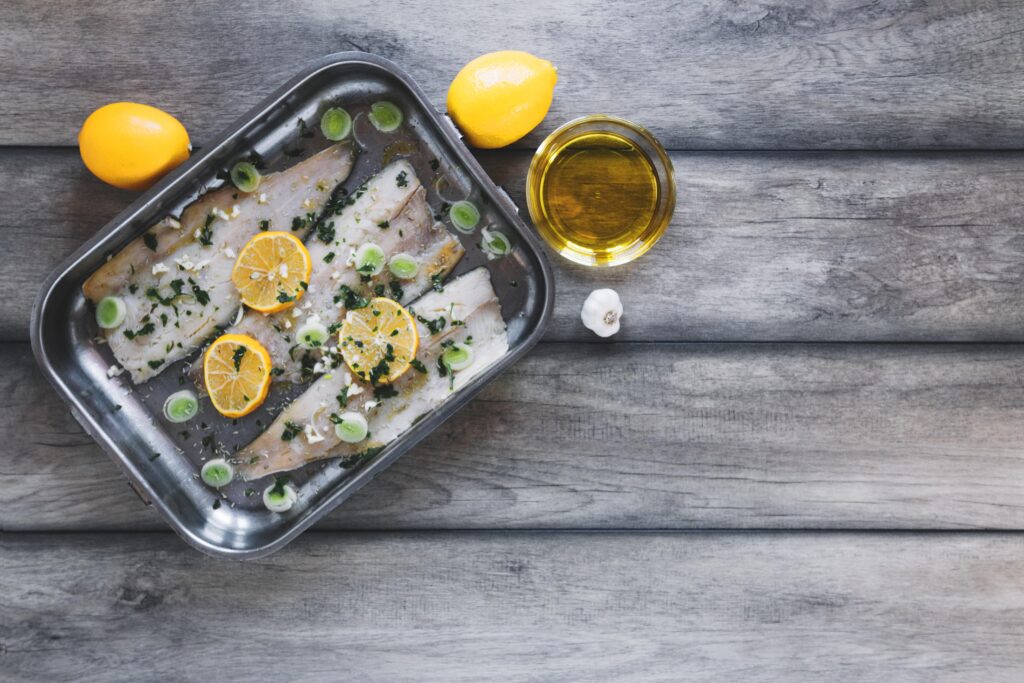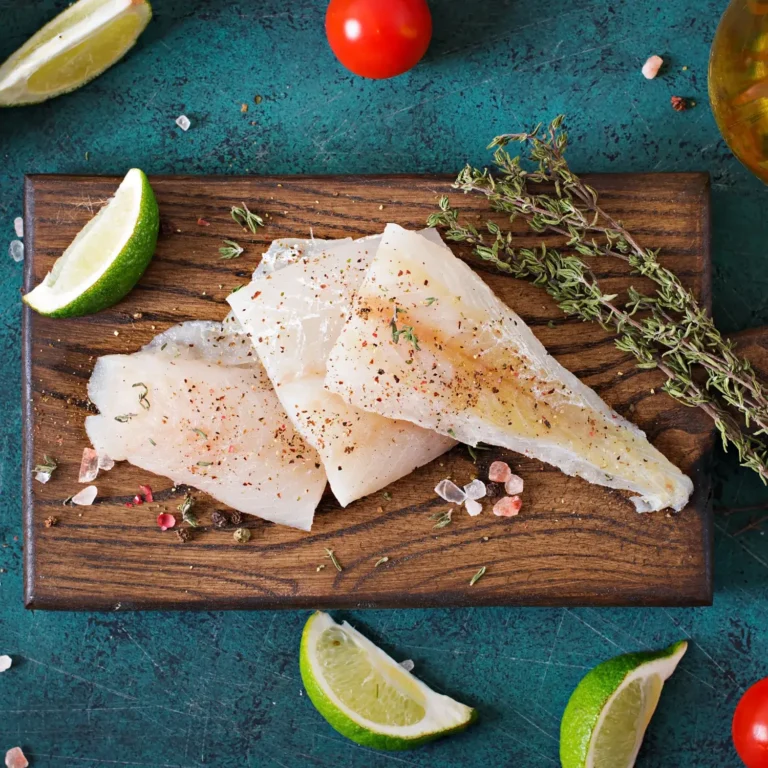Should I Soak Rockfish Before Cooking?
Rockfish is a popular and versatile seafood choice prized for its mild flavor and flaky texture. However, the preparation process can significantly influence the quality of the dish. A frequently debated topic is whether soaking rockfish before cooking is truly necessary. This method is often used to improve texture, remove unwanted odors, or enhance flavor. But is it always beneficial?
In this article, we’ll explore why some cooks soak rockfish, when it might be necessary, and the best methods for doing so.
“Discover an array of creative and flavorful recipes using rockfish to inspire your next meal.”
What is Rockfish?
Rockfish is a group of saltwater fish known for their lean, firm, and flaky texture. These fish are commonly found in the Pacific Ocean, particularly along the west coast of North America. They belong to the Sebastes genus, which encompasses over 70 species, including black rockfish, vermilion rockfish, and yelloweye rockfish.
Characteristics of Rockfish
Rockfish is recognized for its unique features that make it an excellent choice for various cooking methods. Its mild, slightly sweet taste allows it to absorb the flavors of marinades and spices effectively. Additionally, the firm texture holds up well to grilling, baking, frying, or steaming.

Some key traits of rockfish include:
- Low-fat content: Ideal for those seeking healthy protein options.
- Rich in nutrients: Packed with omega-3 fatty acids, vitamin D, and protein.
- Firm but flaky texture: Perfect for recipes that call for a substantial yet tender fish.
Common Culinary Uses
Rockfish is a cherished ingredient in various cuisines, celebrated for its remarkable adaptability. Popular dishes include:
- Grilled rockfish fillets with herb butter
- Crispy rockfish tacos topped with fresh slaw
- Asian-style rockfish steamed with soy sauce and ginger
- Classic fish chowders and soups
With its versatility, rockfish fits seamlessly into recipes from various culinary traditions, making it a reliable choice for home cooks and professional chefs alike.
Nutritional Benefits
Rockfish is not only delicious but also packed with health benefits:
- Heart health: Rich in omega-3 fatty acids, rockfish supports cardiovascular health.
- Bone strength: High levels of vitamin D and calcium contribute to strong bones.
- Low in calories: Rockfish is a low-calorie option that provides essential nutrients, making it ideal for weight management.
With such nutritional advantages, rockfish is a great addition to any balanced diet. However, proper preparation ensures you can enjoy its full potential, which brings us to the debate about soaking.
“Learn about the health benefits and culinary appeal of rockfish in this detailed guide.”
Why Do People Soak Fish Before Cooking?
Soaking fish is a traditional preparation technique with roots in various culinary practices worldwide. While it may seem unnecessary to some, soaking serves several purposes, especially for fish like rockfish. Below, we’ll explore why soaking is a common step in fish preparation.
Eliminating Fishy Odors
One of the main reasons people soak fish is to remove the “fishy” odor that can be off-putting. Even though rockfish is known for its mild smell, improper storage or older fish can develop stronger odors. Soaking in milk is a widely recommended solution because:
- Milk binds to TMA (trimethylamine): This compound causes the fishy smell. Milk neutralizes it effectively.
- Subtle flavor enhancement: Unlike water, milk imparts a slight creaminess to the fish.
Enhancing Texture and Flavor
Soaking isn’t just about odor; it can also improve the texture and taste of rockfish. Saltwater brines or marinades enhance the fish’s natural flavor and tenderize the meat. A proper soak can:
- Firm up the texture, making the fish easier to cook and handle.
- Prevent the fish from drying out during cooking.
- Allow the seasoning to penetrate the flesh.
Do You Need to Soak Rockfish?
The necessity of soaking rockfish depends on various factors, such as the fish’s freshness, smell, and your intended preparation method. While soaking is not always required, understanding when it is beneficial can improve your cooking outcomes.
When Soaking is Recommended
There are specific scenarios when soaking rockfish can enhance the overall dish. These include:
- Using frozen or older fish: If your rockfish has been frozen for an extended period or has started to develop a slight odor, soaking can neutralize unwanted smells and revive its flavor.
- Removing excess salt from processed fish: Pre-packaged or pre-seasoned rockfish may benefit from a quick soak to reduce any overpowering saltiness.
- Prepping for fried dishes: A brief soak in milk or buttermilk before coating the fish in breadcrumbs can enhance its crispiness and flavor.
- Tenderizing tougher cuts: For larger rockfish or those with slightly tougher textures, soaking in a brine or acidic solution like vinegar can help tenderize the flesh.
When Soaking is Unnecessary
On the other hand, soaking isn’t always essential, particularly in these cases:
- Fresh, high-quality rockfish: Freshly caught rockfish often has a clean, mild aroma and a naturally tender texture. In such cases, soaking may not make a noticeable difference.
- Quick cooking methods: When grilling, broiling, or steaming rockfish, soaking might not add value, as these techniques already help preserve the fish’s natural moisture and flavor.
- Marinated recipes: If you plan to marinate the fish, soaking first might dilute the marinade’s effectiveness.
The decision to soak ultimately depends on your specific needs and preferences, as well as the quality of the fish you’re working with.
Different Soaking Methods for Rockfish
If you’ve decided to soak your rockfish, choosing the right method is essential for achieving the desired results. Below are the most popular soaking techniques, along with their benefits and step-by-step instructions.
Soaking in Milk
Milk is a classic soaking agent for fish, particularly when odor neutralization is a priority.
- Why it works: Milk contains casein, a protein that binds to odor-causing compounds like trimethylamine (TMA). This process eliminates fishy smells and enhances the fish’s mild flavor.
- How to do it:
- Rinse the rockfish under cold running water to eliminate any debris or impurities.
- Submerge the fish in a bowl of whole milk or buttermilk, ensuring it’s fully covered.
- Let it soak in the refrigerator for 20–30 minutes.
- Remove the fish, pat it dry with paper towels, and proceed with your recipe.
Saltwater Brine

Brining rockfish in saltwater is a simple way to improve texture and infuse the fish with a subtle, savory flavor.
- Why it works: Brine helps the fish retain moisture, making it less likely to dry out during cooking. It also firms up the texture, which is particularly useful for frying or grilling.
- How to do it:
- Combine 1/4 cup of salt with 4 cups of cold water in a large bowl. Stir until the salt dissolves.
- Submerge the rockfish in the brine solution.
- Allow it to soak for 30 minutes in the refrigerator.
- Rinse the fish thoroughly under cold water and pat it dry before cooking.
Vinegar or Lemon Water
Acidic soaking solutions like vinegar or lemon water are ideal for tenderizing and freshening fish.
- Why it works: Acids break down proteins in the fish, making it softer and more flavorful. Additionally, they help to neutralize any residual odors.
- How to do it:
- Mix 1 tablespoon of white vinegar or fresh lemon juice with 2 cups of cold water.
- Submerge the rockfish in the solution.
- Let it soak for 15–20 minutes in the refrigerator.
- Rinse the fish, pat it dry, and proceed with your cooking method.
Each method serves a specific purpose, so choose the one that aligns with your desired outcome for the dish.

“Explore what is the best way to use rockfish”
Expert Tips for Preparing Rockfish: Should I Soak Rockfish Before Cooking?
Proper preparation can elevate the quality of your rockfish dish, whether you decide to soak it or not. Below are some expert tips to ensure your fish is ready for cooking and full of flavor.
Choosing Fresh Rockfish: Should I Soak Rockfish Before Cooking?
The freshness of your rockfish significantly impacts its taste and texture. Selecting high-quality fish can often eliminate the need for soaking altogether. Here’s what to look for:
- Clear eyes: Fresh whole rockfish should have bright, clear eyes rather than cloudy or sunken ones.
- Firm flesh: Gently press the fish; the flesh should spring back and feel firm to the touch.
- Mild scent: Fresh rockfish has a clean, briny smell rather than a strong, fishy odor.
- Shiny, moist skin: Look for moist skin with a natural sheen, which indicates freshness.
If purchasing fillets, opt for those with a translucent appearance and no discoloration around the edges.
Preparing Rockfish Without Soaking: Should I Soak Rockfish Before Cooking?
If soaking isn’t necessary, you can still prepare your rockfish effectively using these methods:
- Rinse thoroughly: Rinse the fillets or whole fish under cold running water to remove any scales, slime, or debris.
- Pat dry: Use paper towels to dry the fish thoroughly before cooking. This step ensures a better sear or crust if frying or grilling.
- Remove pin bones: Use tweezers or needle-nose pliers to remove any remaining bones for a smoother dining experience.
- Marinate directly: For enhanced flavor, marinate the fish in your preferred seasoning blend for 15–30 minutes before cooking.
These simple steps prepare the fish while preserving its natural flavor and texture.
Boosting Flavor with Marinades: Should I Soak Rockfish Before Cooking?
Instead of soaking, some chefs prefer to use marinades to infuse rockfish with bold flavors. Here are a few marinade ideas:
- Mediterranean: Olive oil, lemon juice, garlic, and oregano.
- Asian-inspired: Soy sauce, ginger, sesame oil, and a touch of honey.
- Herbaceous: Fresh dill, parsley, minced garlic, and olive oil.
Marinating directly eliminates the need for soaking and enhances the dish’s complexity.
Steering Clear of Common Mistakes: Should I Soak Rockfish Before Cooking?
To make the most of your rockfish preparation, avoid these common pitfalls:
- Over-soaking: Extended soaking, especially in acidic solutions, can break down the fish excessively, leaving it mushy.
- Skipping rinsing after soaking: Always rinse the fish after soaking to remove any residual solution that could alter the flavor.
- Ignoring moisture removal: Patting the fish dry is crucial for achieving a crisp crust or golden-brown finish.
FAQs: Should I Soak Rockfish Before Cooking?
Should you soak fish before cooking?
Soaking fish before cooking is not always necessary, but it can be beneficial in certain situations. For example, soaking can help neutralize strong odors, improve texture, or enhance flavor depending on the soaking solution used. Milk is excellent for reducing fishy smells, while a saltwater brine helps to firm up the flesh and infuse subtle seasoning. The need to soak depends on the fish’s quality and the intended cooking method.
Should you brine rockfish?
Brining rockfish can be a great way to enhance its texture and flavor. A simple saltwater brine not only seasons the fish but also helps it retain moisture during cooking. This is particularly useful for grilling, frying, or baking rockfish, as it prevents the fish from drying out. A typical brine consists of salt dissolved in cold water, with optional flavor enhancers like herbs or spices, and the rockfish should soak for 30–45 minutes for optimal results.
What is the best thing to soak fish in before frying?
The best soaking solution for fish before frying is buttermilk or milk. Both options help neutralize fishy odors while tenderizing the fish’s texture. Buttermilk, in particular, adds a subtle tanginess that enhances the overall flavor. After soaking, pat the fish dry and coat it in breadcrumbs, cornmeal, or batter for a crispy, golden finish. This method works well for rockfish and other mild-flavored fish varieties.
Do you need to soak salt fish before cooking?
Yes, soaking salt fish before cooking is essential to remove the excess salt used in preservation. Typically, the fish is soaked in cold water for several hours or overnight, with the water changed periodically to flush out the salt. For a quicker method, boiling the salt fish briefly before soaking can speed up the desalination process. Once soaked, the fish is ready for use in recipes like stews, fritters, or casseroles.
“Compare the flavors of rockfish and tilapia to choose the best option for your recipes.”
Conclusion: Should I Soak Rockfish Before Cooking?
Soaking rockfish before cooking is not always necessary, but it can be a valuable preparation step in certain situations. It helps eliminate unwanted odors, improves texture, and enhances flavor when done correctly. Methods such as soaking in milk, saltwater brine, or acidic solutions like lemon water cater to different needs, whether you’re dealing with older fish or preparing for a specific recipe.
However, for fresh, high-quality rockfish, soaking may not be required at all. Simple preparation methods like rinsing, drying, and direct marination are often sufficient to bring out the best in this versatile seafood. By understanding when and how to soak rockfish, you can elevate your culinary experience and enjoy perfectly cooked, flavorful dishes every time.
Whether you choose to soak or skip it, the key lies in using fresh fish and applying proper preparation techniques. Experiment with the suggested methods to find the one that best suits your cooking style and taste preferences.

